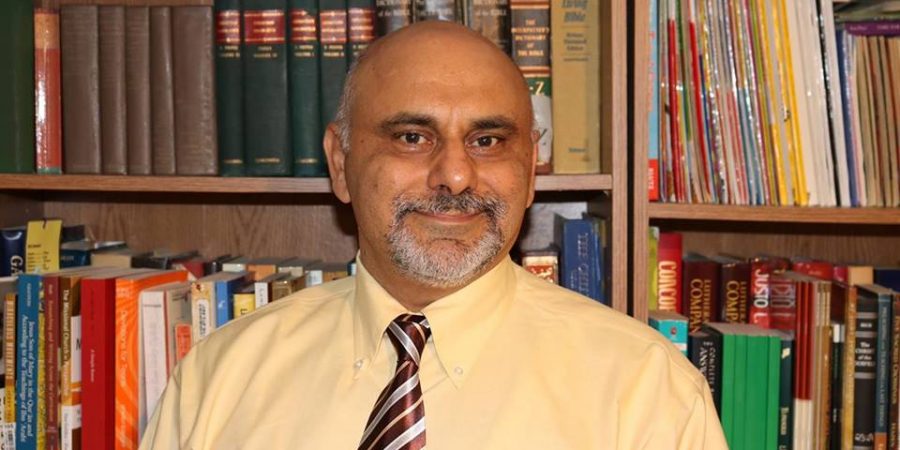Liberals in some Protestant churches, and leftist professors at American campuses, have championed the BDS with zeal.
Hesham Shehab: BDS Compromises Christian Theology

Some American churches and Christian organizations have been unwittingly supporting the boycott, divestment, and sanctions (BDS) movement against Israel, even though it infringes on the Christian doctrine of the separation between Church and State.
The BDS movement aims to discourage foreign investment and corporate involvement in Israel, isolate the Jewish state diplomatically, and undermine Israel’s legitimacy in the international arena. All of this is allegedly done in the hope of twisting Israel’s arm and forcing her to succumb to the creation a Palestinian state that includes the territories lost in the 1967 Israeli- Arab War.
I first heard about the BDS movement in 2003, in Beirut, Lebanon. An American missionary from Texas who worked with the Christian organization Youth with a Mission (YWAM) visited the Palestinian Territories in that year and conveyed to me that some American churches that provide relief and development to Palestinians are reconsidering their support for Israel. She added that the only way to peacefully shackle the Israeli occupation of the Palestinian territories was to divest from all Israeli businesses. The missionary added that the Presbyterian Church was leading the way in the BDS movement.
That must have been true, because BDS gained momentum in 2004, when the Presbyterian Church USA voted to divest from companies doing business with Israel.
Later on, the Evangelical Lutheran Church in America (ELCA), convened at ELCA’s triennial 2016 Churchwide Assembly in New Orleans, and overwhelmingly approved two resolutions calling on the U.S. government to end all financial and military aid to Israel until Israel “compl[ies] with internationally recognized human rights standards”, freezes settlement construction on occupied Palestinian land.”
In addition, Liberals in some Protestant churches, and leftist professors at American campuses, have championed the BDS with zeal. Hence, some young evangelical college students have been vulnerable targets for BDS activists.
Consequently, studies confirm that “the anti-Zionist BDS campaign has encouraged anti-Semitism and intimidation of Jewish students on campuses in America and Europe (…).”
After being ordained in the Lutheran Church- Missouri Synod (LCMS), I have become aware of the theological disparity of such a movement in churches.
Commenting on the BDS movement, the Reverend Nabil Nour, Executive-3rd Vice-President of the Lutheran Church- Missouri Synod (LCMS), said: “As a Christian, I have the freedom to speak and opine about any foreign policy or social issue. That is my God-given right as a citizen of the United States. However, when it comes to the Church of Jesus Christ that is another matter. The Church as such does not have a specific foreign policy for the United States. Our MISSION and MINISTRY AND MESSAGE is to proclaim the sweet and precious gospel, that Jesus came into the world to save sinners through His death and third day defeat of Satan, sin and death wherever and whenever we can. We are concerned for religious liberty and the persecution of fellow Christians, but whenever we try to opine on foreign policy or other social issues, more often than not, we get in the way of and hinder the gospel to have free course.”
The Israeli-Arab conflict is a complicated issue into which no church body should intervene. The Guardian published a report on the BDS movement that suggests the Palestinian cause has suffered because the movement shifts the resolution of the conflict from a two-state solution based on negotiation to older and deeper questions like the legitimacy of Zionism (consequently, Israel).
The Guardian clarifies: “BDS has challenged the two-state consensus of the international community. In so doing it has upset the entire industry of Middle East peace process nonprofit organizations, diplomatic missions and think tanks by undermining their central premise: that the conflict can be resolved simply by ending Israel’s occupation of Gaza, East Jerusalem and the rest of the West Bank, leaving the rights of Palestinian citizens of Israel and refugees unaddressed.”
Bassem Eid, the founder of Palestinian Human Rights Monitoring Group asserts: “The BDS campaign is completely contradictory to the Palestinian cause. We will never build peace this way. It has been catastrophic. The Palestinian people want prosperity, and BDS is about a totally different agenda. It is the agenda of Hamas in the Gaza Strip, and the Muslim Brotherhood, and Hezbollah in Lebanon, and Iran.”
Indeed it has been increasingly documented that there are substantial ties between leading elements of the BDS movement and terrorist organizations, including Islamist jihadist groups such as Hamas and Palestinian Islamic Jihad.
Given the Christian view of the separation between Church and State, it is hard to imagine how one could possibly justify a Christian approach to participating in the BDS movement; which puts one in affiliation with those who use terroristic violence to achieve their aims. One must also recognize that an Islamist state -as these terror groups seek to implement- would be horrifically hostile to religious liberty and engage in the deliberate persecution of Christians.
Even absent this, the BDS movement is ineffective at achieving what laudable goals it may espouse. Studies affirm that “the BDS campaign has achieved nothing positive. It has not only failed to realize its stated objectives; it has set them back massively since 2004 (..) Israel has experienced unprecedented growth and become significantly more secure economically, socially, and diplomatically.”
Churches should resist the temptation to join in this destructive anti-Semitic movement, and should be wary of those who seek to involve the church in overtly political issues and focus instead on sharing the Gospel of Jesus Christ.
Rev. Hesham Shehab
N.B. Even though Martin Luther had hatred for the Jews, and John Calvin in Geneva helped run an oppressive religious states, today’s mainstream Christian theology emphasizes the separation between Church and State.
Read latest opinions for Hesham Shehab at… https://xpian.news/2019/08/15/hesham-shehab-another-radical-palestinian-for-u-s-congress/

Hesham Shehab
Adjunct Faculty at College of DuPage, Formerly Adjunct Faculty at American University of Beirut and Pastor at Peace Lutheran Church Lombard, IL Name pronounciation: HI-shahm SHI-hab Hebrews 12: 4 & Philippians 1: 29




Comments are Closed